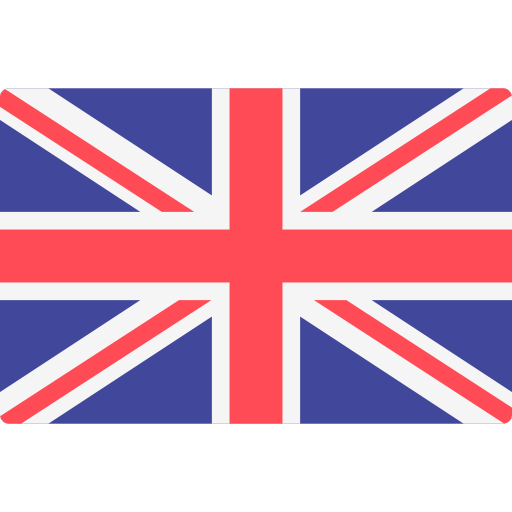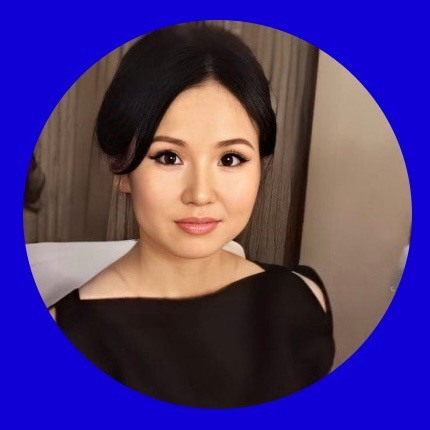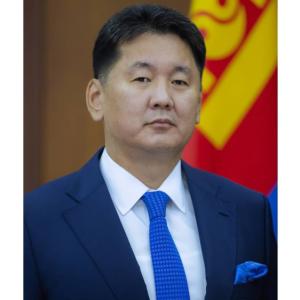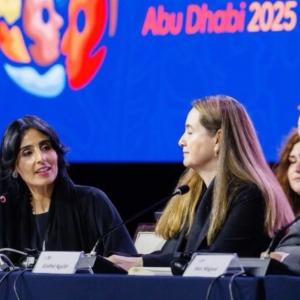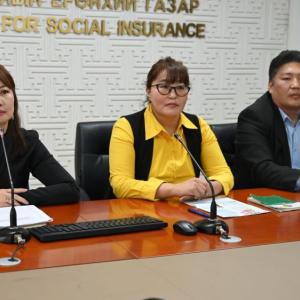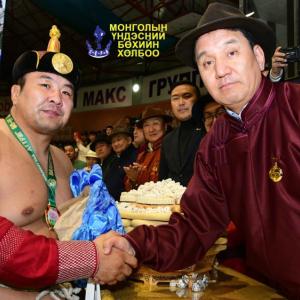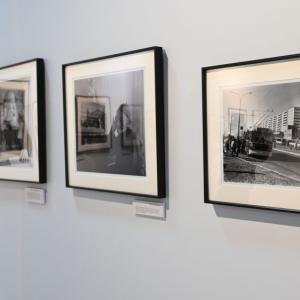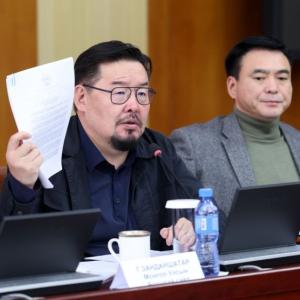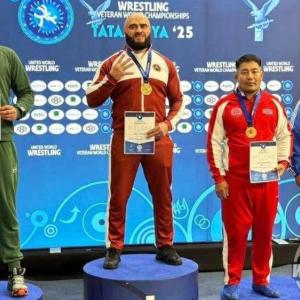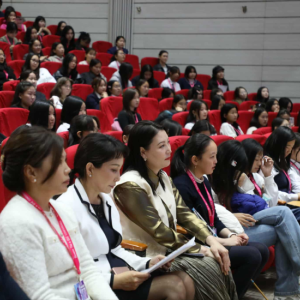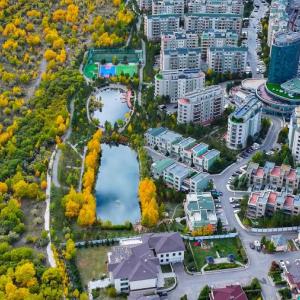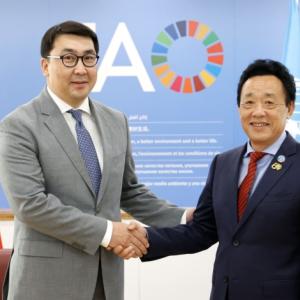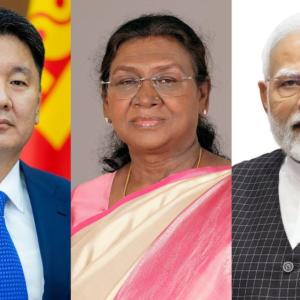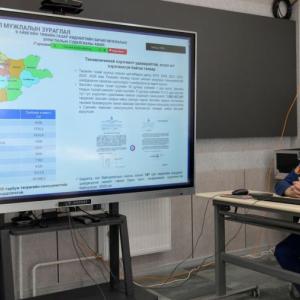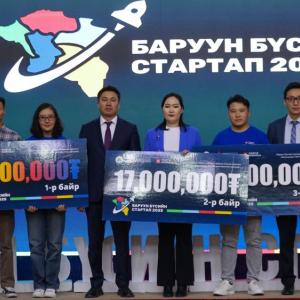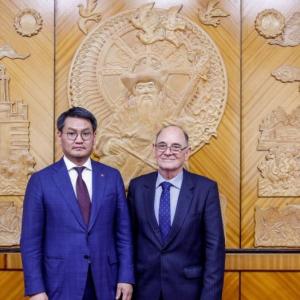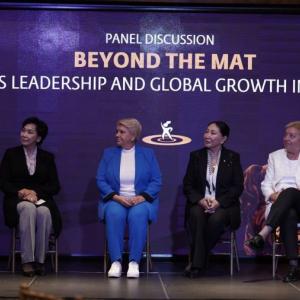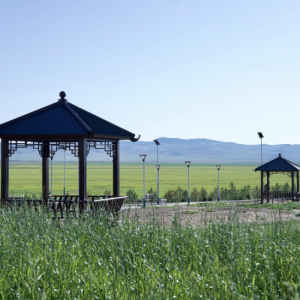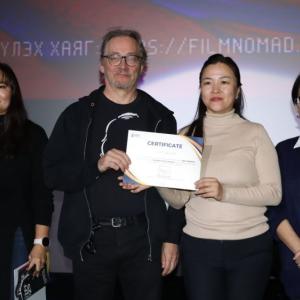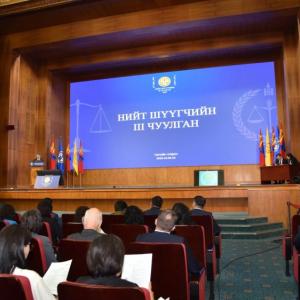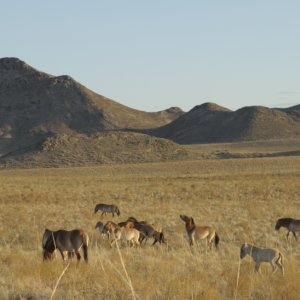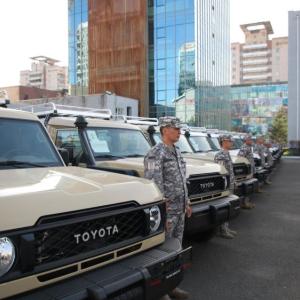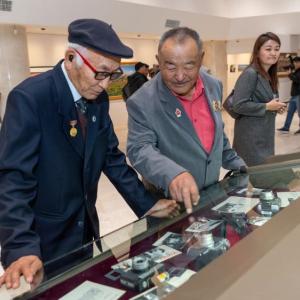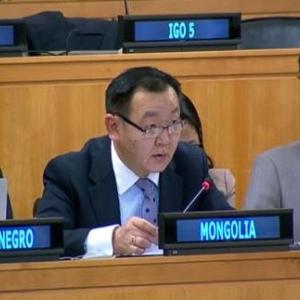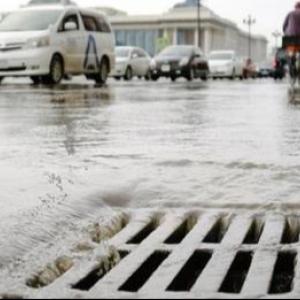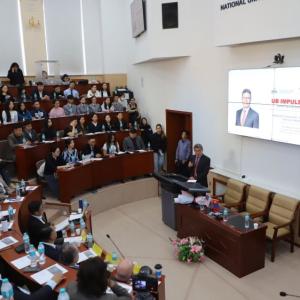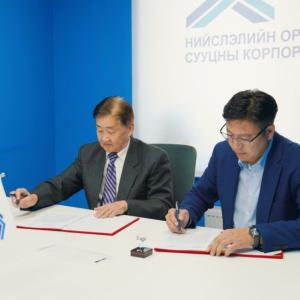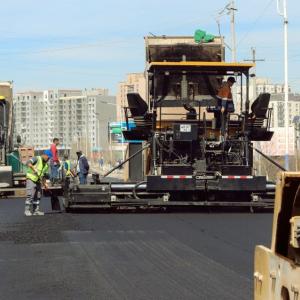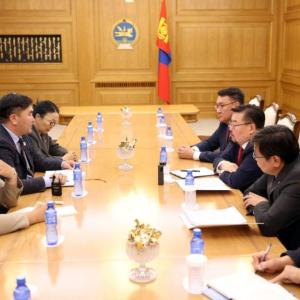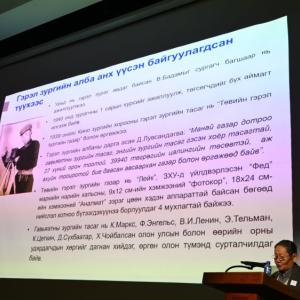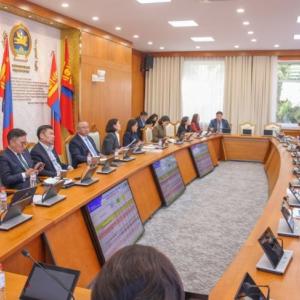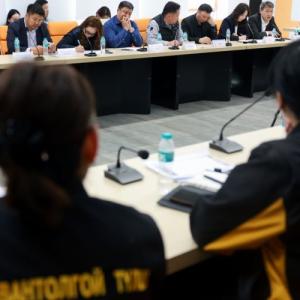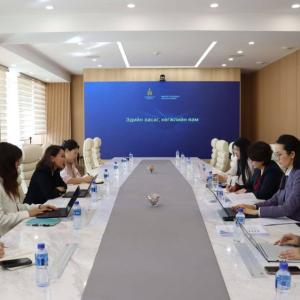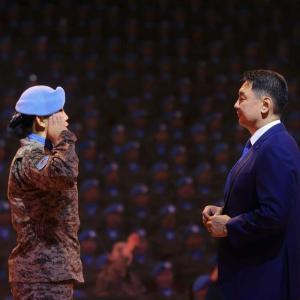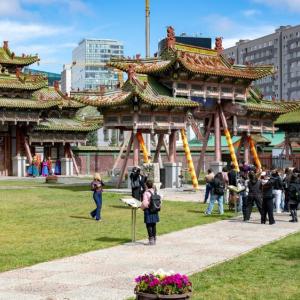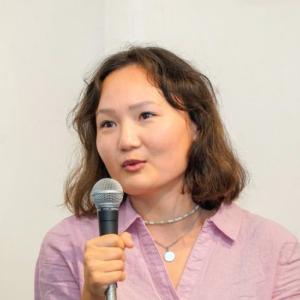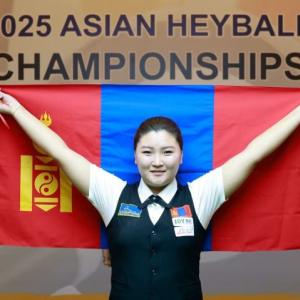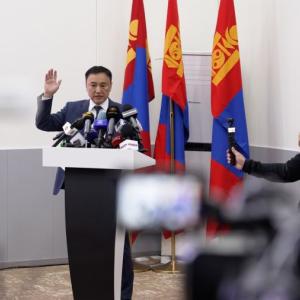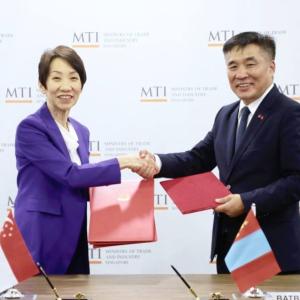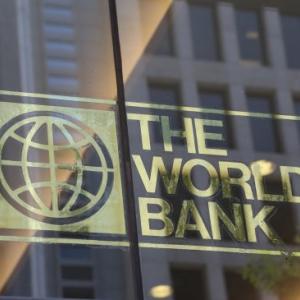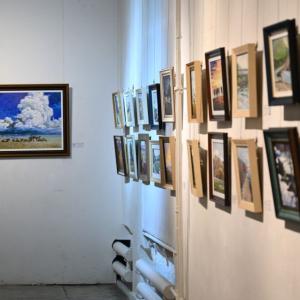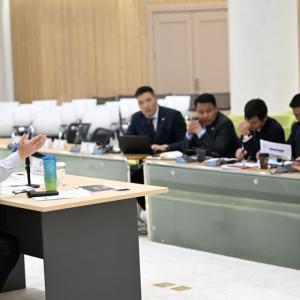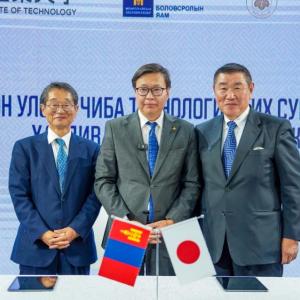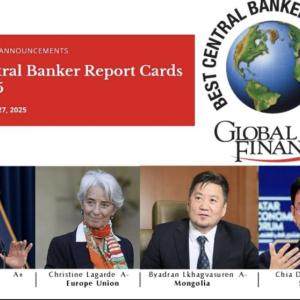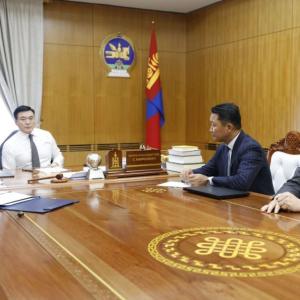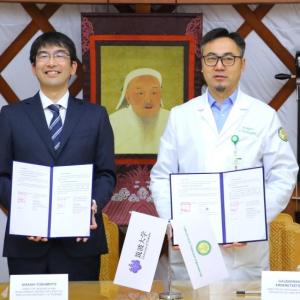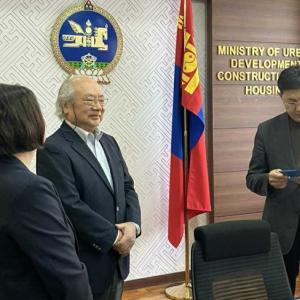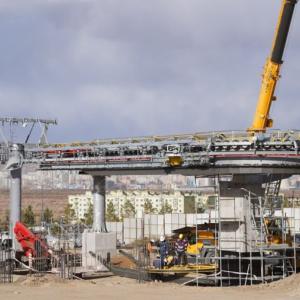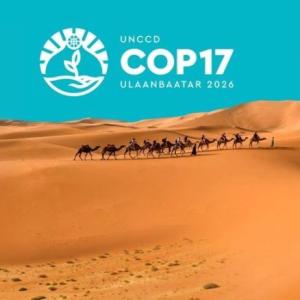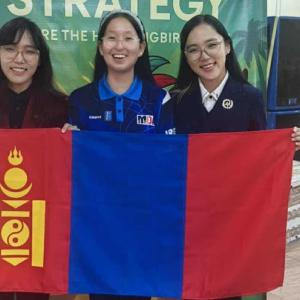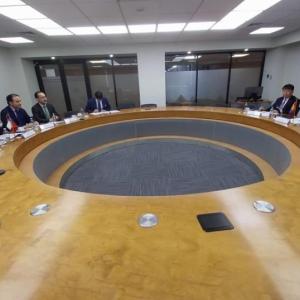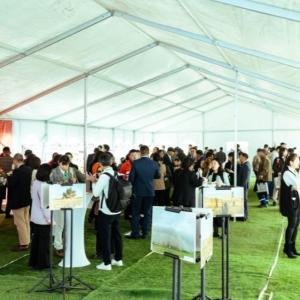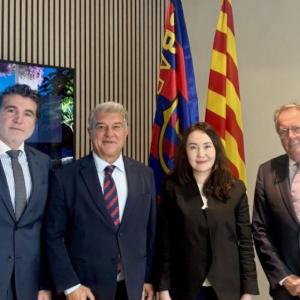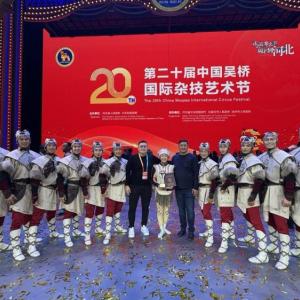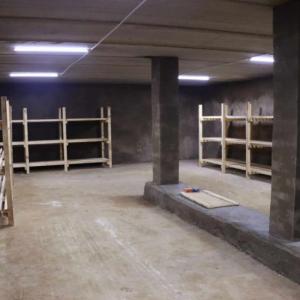B. BATTSETSEG: Women’s leadership brings a positive impact on all spheres of life
Politics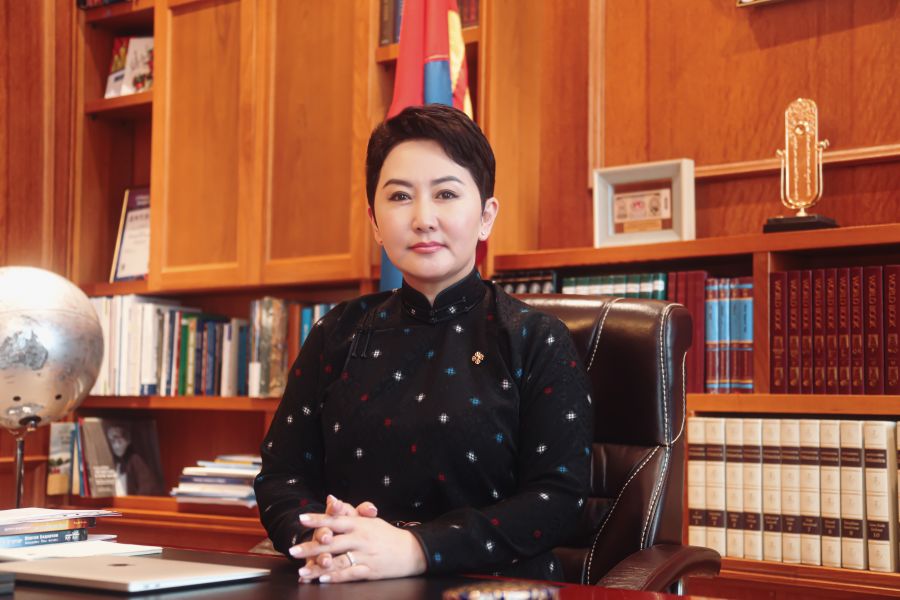
Ulaanbaatar, June 27, 2023 /MONTSAME/. At the initiative of the Foreign Minister Batmunkh Battsetseg, Mongolia will host a Female Foreign Ministers’ Meeting in Ulaanbaatar. Regarding to the Ministers’ Meeting, Minister B. Battsetseg is interviewed.
-REVITALIZATION OF EXTERNAL RELATIONS: FEMALE FOREIGN MINISTERS GATHER IN MONGOLIA-
-Mongolia will host the Female Foreign Ministers
Meeting at the end of the month. What are your expectations from the meeting?
-Mongolia will host its first Female Foreign
Ministers Meeting in Ulaanbaatar on June 29-30 in line with its efforts and
commitment to support the well-established practices and engagements. The
meeting will offer a platform for participants to exchange views and share best
practices on feminist foreign policymaking as well as the global and regional challenges the
international community faces.
Climate change, natural
disasters, the COVID-19 pandemic, supply chain disruptions, energy crisis, food
insecurity, and geopolitical tensions have posed unprecedented global challenges.
Not only have these impediments added complexity to addressing current
challenges, but also exacerbated existing ones. To this end, we have agreed to
hold three panel discussions on (I) climate change, (II) food security, and
(III) the role of women in promoting peace and security. The participants have
already started discussing and negotiating the meeting’s outcome document.
Over the years, I had
the opportunity to take part in several meetings of the Feminist Foreign Policy
+ Group and Informal Network of Women Foreign Ministers organized during
various international conferences. As a female Foreign Minister, I believe it
is up to us to echo the voices of women and girls worldwide and promote women’s
participation and leadership in addressing international peace and security,
climate change, and food security-related challenges.
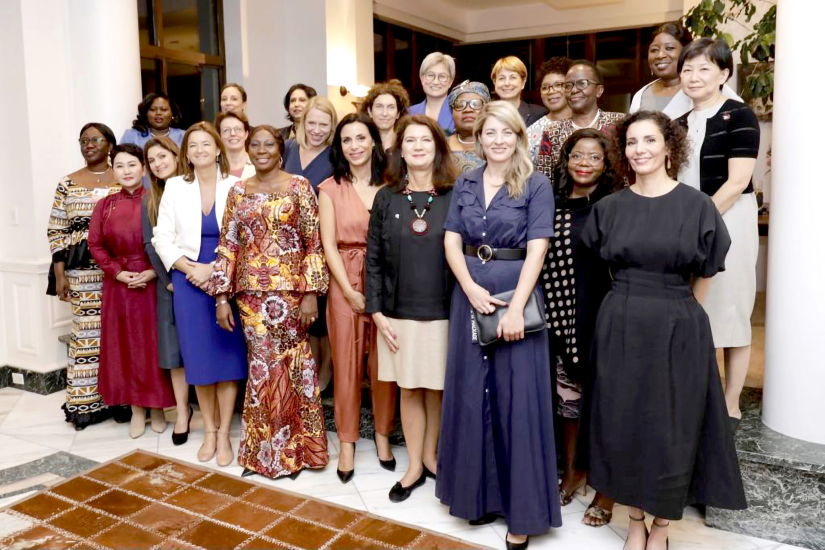
-Feminist foreign policy is a relatively
new and emerging concept. How does this concept align with Mongolia’s foreign
policy?
-Countries are shifting towards feminist and feminist-oriented
foreign policies, with a strong emphasis on protecting the rights of women and
girls, women empowerment, and ensuring gender equality as the core principles
of human rights-based development. It is based on the fundamental values that
everyone, regardless of their gender, should have equal rights, freedom, and
opportunities.
Sweden was the first to
adopt a feminist foreign policy. In 2014, Former Foreign Minister Margot Wallstrom
introduced the Swedish government’s policy aimed to include a gender
perspective in all policy development and decision-making. Since then,
countries including Canada, France, Mexico, Spain, Luxembourg, Germany, Libya, Australia,
Norway, and Chile have followed suit.
Countries with feminist
foreign policies like Canada, Australia, and Sweden have organized thematic
meetings for female Foreign Ministers to address certain issues. Last year,
Australian Foreign Minister Marise Payne and Canadian Foreign Minister Mélanie
Joly convened talks on protecting the rights of women and girls in vulnerable
situations.
These two are the main platforms that regularly bring female Foreign Ministers together. The Informal Network of Women Foreign Ministers is held every year during the UN General Assembly in September in New York. Mongolia joined the Feminist Foreign Policy + Group in May 2022. The members of the Group are committed to incorporating a gender-based approach in foreign policies and international cooperation and promoting women’s involvement in decision-making processes.

Mongolia strongly
advocates for gender equality, protection of the rights of women and girls, and
consistently supports international initiatives. Mongolia’s recent membership
in the governing bodies of UN Women and the Commission on the Status of Women and
its efforts to support women in peacekeeping are reflections of Mongolia’s
feminist-oriented foreign policy. In addition, the Mongolia-led biennial
resolution entitled “Improvement of the Situation of Women and Girls in Rural
Areas” has been adopted by the UN General Assembly since 1997.
Human rights, gender
equality, women empowerment, and the incorporation of a gender perspective in
all national policies and activities are at the forefront of Mongolia’s agenda.
Over the years, we have increased the participation and leadership of women in
our foreign service as well as in UN peacekeeping operations and we will
continue to do so. Mongolia remains fully committed to increasing the percentage
of Mongolian women peacekeepers to 15 percent by 2027.
You may say Mongolia
pursues a feminist-oriented foreign policy.
-You mentioned that Mongolia pursues a feminist-oriented
foreign policy, could you elaborate on this?
-Although we have not incorporated specific
gender-related terms or references in our foreign policy concept, nor publicly
announced an adoption of a feminist foreign policy, we have been steadily
pursuing a feminist-oriented foreign policy and bridging any existing gaps
between genders.
Five years after the
Ministry of Foreign Affairs of Mongolia began training women diplomats in 1951,
a woman was appointed as a diplomat for the first time. Until 1990, less than
10 percent of the foreign service staff were women. Today, half of the staff and
managerial positions are held by women. Currently, we have 6 women ambassadors serving
at diplomatic missions abroad. This is the highest number of women ambassadors
we have had serving at the same time. Mongolia’s democratic transition and local
training of diplomats in concert with our gender-based approach have been the
driving forces behind these achievements.
Following its
membership in the United Nations, Mongolia has been a strong supporter of
international initiatives, particularly on women’s empowerment and gender
equality. One of the first UN events Mongolia hosted was an international
seminar on the role of women in society. Mongolian women diplomats have been elected
to the UN General Assembly’s Second and Third Committees, both dealing with socioeconomic
development and human rights. During its UN Human Rights Council membership
from 2016 to 2018, Mongolia prioritized gender equality and the protection of
the rights of women, children, and people with disabilities.
Last year, we commemorated
the 20th anniversary of Mongolia’s participation in UN peacekeeping.
Mongolia has already become one of the top contributors in terms of the number
of military forces sent on peacekeeping operations. Over 900 Mongolian women
peacekeepers have served in UN peacekeeping and contributed to world peace and
security. Mongolia has contributed the 17th largest number of women
peacekeepers, leading the Northeast and Central Asian countries. Furthermore,
Mongolia organized the international conference on “Women in Peacekeeping” in
June 2022 to address the challenges faced by women in peacekeeping operations
and increase their involvement.
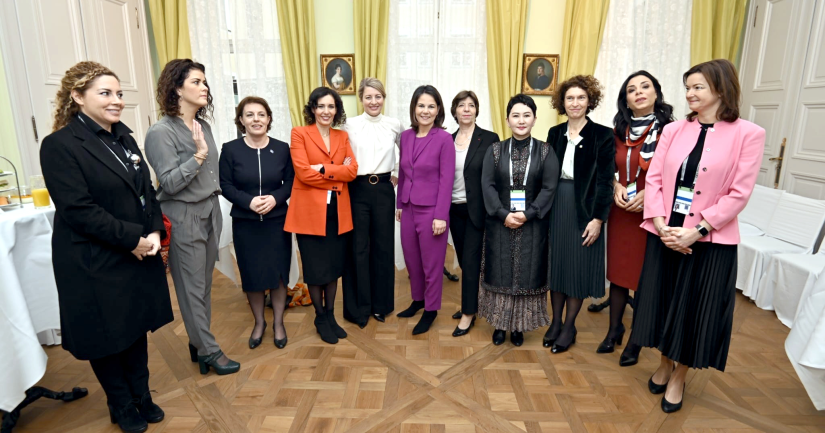
-How can feminist foreign policies
contribute to addressing global challenges?
-It is already a proven fact that women’s leadership
brings a positive impact on all spheres of life. According to the study
conducted by the McKinsey Global Institute in 2015, equal participation of
women in the global labor market could lead to 26 percent growth of global GDP,
in other words, 28 trillion USD, within a decade. The World Bank also estimated
that a 2 percent increase in women’s representation at the decision-making
level reduces the corruption rate by 8 percent.
Some researchers claim
that the increased participation of women at the political and administrative
levels also increases the tendency for external disputes to be resolved
peacefully. Furthermore, the probability of concluding peace agreements and their
implementation lasting longer are higher when women’s participation in the peacemaking
process is ensured.
Certain achievements
have been accomplished in the 20 years since the adoption of the UN Security
Council Resolution 1325 on Women, Peace, and Security, yet, the representation
of women in peace processes remains insufficient. For instance, from 1992 to
2019, women’s participation rate in the official peace talks among the
conflicting parties remained at 13 percent, whereas the participation rate of
women mediators was at 6 percent. Women’s leadership and participation are of paramount
importance in addressing global challenges and easing tensions through
dialogue.
-How does Mongolia ensure that different perspectives
are voiced in the dialogue process and how do you plan to follow up on the
discussions and initiatives that emerge from the talks?
-We have sent invitations to all 39 women who
are currently serving as Ministers of Foreign Affairs in their country and senior-level
female officials from international organizations. In addition, 13 male Foreign
Ministers from countries with feminist or feminist-oriented foreign policies
have been invited to the ministerial meeting.
As of today, 9
countries from different regions as well as high-level officials from the UN,
European Bank for Reconstruction and Development, and the International Trade
Center have confirmed their participation. Among the participants are German
Federal Minister for Foreign Affairs Annalena Baerbock and French Minister for
Europe and Foreign Affairs Catherine Colonna. The two Foreign Ministers have
expressed their support and will co-sponsor the Female Foreign Ministers
Meetings. UN Deputy Secretary-General Amina J. Mohammed and other delegates who
could not attend the meeting in-person have expressed that they will convey
their remarks virtually.
I do not doubt that the dialogue among female Foreign Ministers will continue to broaden and serve as a platform that provides valuable contributions and impetus to addressing global challenges. We will continue the discussions and follow up through our existing dialogues, including the international conference on “Women in Peacekeeping” which we have already decided to host every 5 years.

 Ulaanbaatar
Ulaanbaatar







